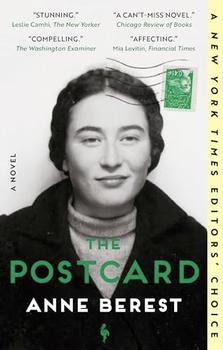Summary | Excerpt | Reading Guide | Reviews | Beyond the book | Read-Alikes | Genres & Themes | Author Bio

The first two stories of a masterwork once thought lost, written by a pre-WWII bestselling author who was deported to Auschwitz and died before her work could be completed.
By the early l940s,
when Ukrainian-born Irène Némirovsky began working on what would become Suite
Française—the first two parts of a planned five-part novel—she was already a
highly successful writer living in Paris. But she was also a Jew, and in 1942
she was arrested and deported to Auschwitz: a month later she was dead at the
age of thirty-nine. Two years earlier, living in a small village in central
France—where she, her husband, and their two small daughters had fled in a vain
attempt to elude the Nazis—she'd begun her novel, a luminous portrayal of
a human drama in which she herself would become a victim. When she was arrested,
she had completed two parts of the epic, the handwritten manuscripts of which
were hidden in a suitcase that her daughters would take with them into hiding
and eventually into freedom. Sixty-four years later, at long last, we can read Némirovsky's literary masterpiece
The first part, "A Storm in June," opens in the chaos of the massive 1940 exodus
from Paris on the eve of the Nazi invasion during which several families and
individuals are thrown together under circumstances beyond their control. They
share nothing but the harsh demands of survival—some trying to maintain lives of
privilege, others struggling simply to preserve their lives—but soon, all
together, they will be forced to face the awful exigencies of physical and
emotional displacement, and the annihilation of the world they know. In the
second part, "Dolce," we enter the increasingly complex life of a
German-occupied provincial village. Coexisting uneasily with the soldiers
billeted among them, the villagers—from aristocrats to shopkeepers to
peasants—cope as best they can. Some choose resistance, others collaboration,
and as their community is transformed by these acts, the lives of these these
men and women reveal nothing less than the very essence of humanity.
Suite Française is a singularly piercing evocation—at once subtle and
severe, deeply compassionate and fiercely ironic—of life and death in occupied
France, and a brilliant, profoundly moving work of art.
Suite Française is a devastatingly poignant work, made more so by the fact that the author was fully cognizant of her situation and correctly doubted that she would ever live to complete her book...continued
Full Review
 (505 words)
(505 words)
(Reviewed by BookBrowse Review Team).
Irène Némirovsky was born in Kiev in 1903 into a wealthy banking family. She emigrated to France during the Russian Revolution and, after attending the Sorbonne, began to write. She achieved success with her first novel, David Golder, which was published when she was 26. This was followed by The Ball, The ...

If you liked Suite Francaise, try these:

by Anne Berest
Published 2024
Anne Berest's The Postcard is among the most acclaimed and beloved French novels of recent years. Luminous and gripping to the very last page, it is an enthralling investigation into family secrets, a poignant tale of mothers and daughters, and a vivid portrait of twentieth-century Parisian intellectual and artistic life.

by Jeanne Mackin
Published 2020
An American woman becomes entangled in the intense rivalry between iconic fashion designers Coco Chanel and Elsa Schiaparelli in this vivid novel from the acclaimed author of The Beautiful American.